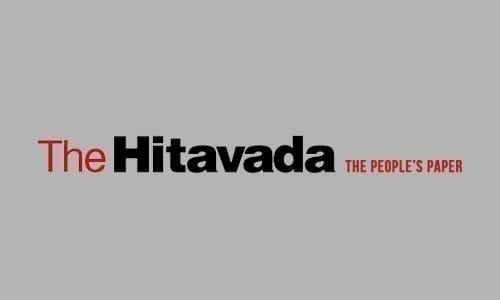Jihadist Influence In Pakistan
| Date :19-Jan-2024 |

ByM A Hossain
IIN THE year 2023, Pakistan found itself grappling with an unprecedented surge in terrorist incidents. The Taliban’s triumph in Afghanistan has catalysed the surge, which in turn emboldened and strengthened the Tehreek-e-Taliban Pakistan (TTP). Over the past two years, TTP underwent a transformative series of mergers, centralising its organisational framework and recalibrating its operational strategy, exclusively focusing on a war against Pakistan. The ideological and tribal nexus cultivated between the Afghan Taliban and the TTP has conferred an unprecedented level of ‘strategic depth’ in its history. This has amplified the complexity of Pakistan’s struggle against terrorism amidst concurrent political and economic challenges. Interestingly, the genesis of this contemporary terrorism is rooted in a protracted historical perspective that necessitates scrutiny to unearth its foundational causes.
The historical narrative unfolds during the Anglo-Indian era, when Islam, as an institution, faced persistent assaults from British rulers and Hindu revivalists. Islamic scholars emerged as stalwart defenders of their faith, preventing Islam from succumbing to the fate of other creeds in Asia. In 1806, Shah Abdul Aziz Mohaddith Dehlavi declared India under British dominion as Dar-ul-Harb (abode of war), asserting the obligation for Muslims to wage revolt for freedom, equality, justice, and revolution against the British Government.
In his fatwa, he articulated that expelling the British was the primary objective, thereafter, it was legitimate for Muslims to hold the reins of power. That’s why, Shah Abdul Aziz has been viewed as a precursor of the Indian Independence movement.
The legacy continued with Sayed Ahmad Barelvi, a devoted follower of Shah Abdul Aziz, declaring jihad (war) against non-Muslim rulers, and culminated in his death in the Battle of Balakot in 1831. Islamic clerics and religious educational institutes played a pivotal role in nurturing socio-political consciousness among Muslims, advocating for equality, justice, and Muslim rights within the British Indian context. The Deoband Madarasa, established in 1866, and its scholars actively contributed to the Indian independence movement. While a majority of Barelvis and select influential Deobandi clerics supported the creation of Pakistan, the Kabaliya region (presently Waziristan), was an autonomous zone throughout the British Raj, adhering to Shah Abdul Aziz’s fatwa. During the Partition movement, Deobandi Ulema, including Mufti Muhammad Shafi and Maulana Shabbir Ahmad Uthmani, persuaded Kabali chieftains to align with Pakistan, promising the implementation of Sharia rule.
Conversely, most Deobandi Ulema, led by Maulana Hussain Ahmad Madani, opposed the creation of Pakistan and the two-nation theory.
After Pakistan’s inception, Islamic scholars and jihadist groups found themselves disillusioned and betrayed by the ruling system, as the country remained bereft of governance under Sharia Law. The separation of East Pakistan (now Bangladesh) exacerbated the frustration, as its leaders opted for a democratic system.
Jihadist groups had been struggling since 1947 to establish Islamic rule in Pakistan. At times they received state sponsorship against the Soviet invasion of Afghanistan and in the Kashmir conflict. President Ziaul Haq harboured ambitions of utilising the Mujahideen as a proxy force in South and Central Asia. Waziristan was a safe haven for local and foreign mujahideen. The people of this region, entrenched in orthodox Islam and staunch traditionalism, laid the groundwork for jihadist activities. Mullah Powinda was the pioneer of jihad in Waziristan. Present TTP emanates from the Waziristan region. So, the present jihadist activities are not a new phenomenon for Pakistan.
During the Soviet-Afghan war, foreign Arab Mujahideen got shelter in Pakistan and utilised the land as a launching pad against Soviet invaders. Al-Qaeda capitalised on this opportunity, merging with local groups and fortifying jihadist networks.
Even before Al-Qaeda, sporadic jihadist groups in Pakistan aspired to establish a Sharia-ruled nation. The intermittent negotiations between Mujahideen groups and the Pakistani Government tighten the resolution over the demand for a modern state and sovereignty, particularly regarding the withdrawal of Government security forces from the claimed area. Since the creation of Pakistan, the ruling system has stumbled numerous times. No democratic Prime Minister could complete their tenure due to military intervention. The military remains powerful in dictating the political landscape in Pakistan. After 76 years of Pakistan’s independence, people are very frustrated, and at present, economic and political challenges made them the worst sufferers. So they sought some alternatives, which became evident during fervent protests by Islamist groups in 2022.
Following the Lal Masjid incident in June 2007, Al-Qaeda and its local offshoots in Pakistan, particularly TTP, openly declared war against the Pakistani Government system. After the Taliban-US truce in 2021, more than 40 local jihadist groups merged with TTP, and now they are deeply rooted in society.
Day by day, they are growing stronger, and they have expanded their influence to other parts of Pakistan, especially Balochistan. TTP’s guerrilla modus operandi reflects their popular support. At present, they have changed their operational policy where they only target security forces.
In my opinion, the Government of Pakistan and its establishment have committed strategic blunders. Firstly, the strategic misstep of expelling undocumented Pashtuns into Afghanistan, ostensibly for security reasons, has backfired. The Pashtun community, historically divided along the Durand Line, vehemently rejects this colonial-era border. The resultant insult and determination among the sensitive Pashtuns to retaliate pose a significant threat. Secondly, there may be reason to believe that Imran Khan has a covert tie with Islamist groups. Imran’s PTI could form a Government in provinces where jihadist groups are influential. Consequently, sidelining Imran inadvertently aids these jihadist groups in garnering popular support. This confluence of missteps contributes to the complex dynamics fuelling the rise of jihadist influence in Pakistan.
(IPA/By arrangement with the Arabian Post)



